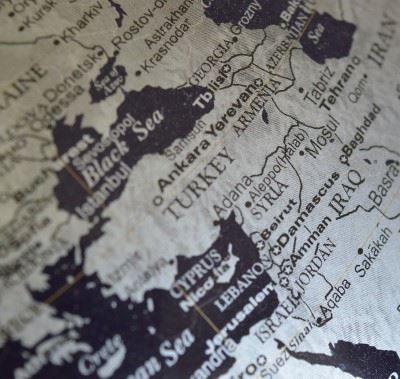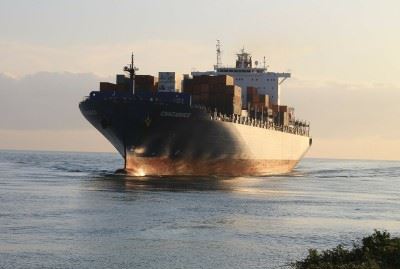
Continent
Europe

Capital
Ankara

Lead Time
3-5 Days

Currency
Turkish New Lira TRY

Coverage
Yes

Tax Rate
Up to 20%

Carrier Options
Courier or Freight Forwarder

Documents Required
CIPL, Datasheets, COO
Export and Import Trade Compliance in Turkey
Importing goods to Turkey can be a complex process if you're unfamiliar with it. Our guide helps you understand Turkey's import taxes, duties and customs clearance regulations.
Turkey is not only geographically large, but it has a rapidly growing economy, attributed to a healthy consumption by its citizens across all sectors. A lot of effort is being put into the country to raise its development and be recognised as a stable and inviting centre to do business with. This is, of course, being driven by the country’s ambition to join the European Union, although they are in the existing EU Customs Union already.
In the last 20 years, the finance sector has had a complete overhaul to ensure reform, and discipline has been enforced – there are many rules, regulations and policies now in place to govern the finance sector. This has had obvious implications on international trade, and it’s probably fair to say that importing goods into Turkey can be a complex process if you are not familiar with it.
The majority of Turkey’s economy is made up of a diverse services sector, including real estate, tourism, financial services, education and health, as well as industry, however the countries' economy has taken a backstep due to Covid-19 and a series of very large earthquakes in 2022 that caused extensive damage.
Doing Business with Turkey
Increasingly, Turkey has become more attractive to do business with for a number of reasons:
- fast-growing demand for most modern goods
- gateway to the markets of Central Asia and the Middle East
- European business ethics and modern management practices
- use of English for business
- new initiatives to meet EU standards make it an attractive business environment
Importing telecommunications equipment into Turkey
 Like many economies today, Turkey has its own set of stringent import requirements, enforced at every point, which must be adhered to very closely, especially for telecoms and medical goods.
Like many economies today, Turkey has its own set of stringent import requirements, enforced at every point, which must be adhered to very closely, especially for telecoms and medical goods.
The Information and Communication Technologies Authority (ICTA) (Turkish: Bilgi Teknolojileri ve İletişim Kurumu (BTK)), is the national telecommunications regulatory and inspection authority of Turkey. It was formerly known as the Telecommunications Authority (Turkish: Telekomünikasyon Kurumu (TK)).
ICTA dictates that telecommunications apparatus in Turkey which connects directly to a public telecommunications network and/or which have an intentional radio-wave transmitter, are subject to the Telecommunication Regulatory Authority (TRA) approval requirements.
Equipment containing radio transmitters is referred to collectively as Radio and Telecommunications Terminal Equipment (RTTE). Local or international manufacturers, dealers, authorized importers and/or licensed operators have to apply for equipment registration as RTTE.
Conformity Compliance (CE Mark)
Companies selling to the Turkish market must submit evidence of conformity compliance (CE Mark) either by providing a conformity certificate from a notified body or a manufacturer-issued declaration of conformity, which declares compliance with all relevant standards and directive annexes.
The declaration of conformity must mention the applicable directive(s), the name of the manufacturer or its authorized representative, the name of the notified body (if involved), product information and reference to harmonized standards.
Risk-Based Trade Control System (TAREKS)
The Ministry of Trade launched a “Risk-Based Control System (TAREKS)” in 2010 to carry out safety and quality checks on exported and imported goods electronically and on a risk basis. Designed to be accessible online using an e-signature, the main purpose of this control system is to increase the efficiency of foreign trade, to provide safe and quality products to consumers and firms by controlling the entry of “risky” products and traders to the market, and to reduce waiting times at customs.
TAREKS includes, medical devices, telecommunication products, personal protective equipment, machinery and electrical equipment, among other goods.
 Import Taxes in Turkey
Import Taxes in Turkey
Import of goods is a taxable transaction in Turkey, whether or not the imported goods are for business purposes. There are several different types of import taxes and duty for Turkey, depending on the goods, and all are collected at the time of importation. Here are some that may apply:
VAT – generally 20%
VAT on imported goods to Turkey is imposed at the same rates applicable to the domestic supply of goods, that is, 20% (increased in July 2023), except for some goods which are eligible for reduced VAT rates of 1% or 8%, and a few other transactions, which are exempt. Further increases are expected to help fund the re-build efforts following the earthquakes in 2022.
Customs Duty – if applicable
Special Consumption Tax - if applicable
Turkey levies a special consumption tax on four product groups, with different tax rates applying depending on the GTIP numbers (tariff numbers). Unlike VAT, which is payable on each delivery, special consumption tax is only charged once in most cases.
TAREKS – if applicable
You can find out more about Turkey’s product safety and quality control systems on imports and exports at Turkey’s Ministry of Trade website.
Banderol fees – 2% to 8%, if applicable
Many countries require tax stamps (or banderoles) as a means of reducing tax non-compliance and controlling the trade of illegal and imitation products, particularly of tobacco and alcohol products. Banderol fees are collected by the Turkish customs administration.
Cultural Fund – 0.4% to 2%
Decree numbered 2012/3012 exists on some devices and are subject to Culture Fund payments. This one-off payment is based on a small percentage of the CIF value. The taxation was put in place to drive investment and development into Turkey's national culture sector.
For expert help and advice about importing goods to Turkey, please get in touch using the enquiry form below.



